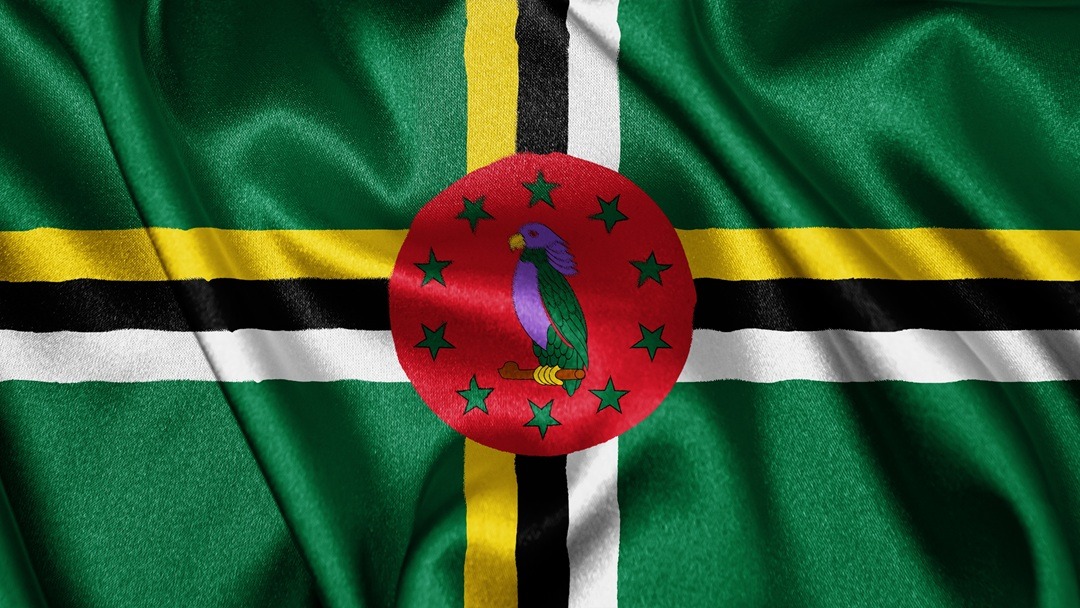Why Is Nigeria Attracting Interest in Free Zone Overseas Banking?24 min read
Reading Time: 9 minutesThe large population and expanding economy have established Nigeria as an African emerging market powerhouse for overseas banking for many years. The country has recently implemented measures to expand foreign investment opportunities and business operations in selected regions.
Nigeria’s network of free trade zones has attracted substantial attention because they provide overseas banking in Nigeria with tax benefits and other advantages.
International companies and individuals who wish to profit from Nigerian opportunities depend heavily on overseas banking services.
Doing business in Nigeria’s free zones through an overseas bank account at digital platforms like The Kingdom Bank enables businesses to benefit from Nigeria’s investment environment and use comprehensive online banking services globally.
Recent developments have positioned Nigeria as one of Africa’s top markets for business opportunities and investment growth. As Sub-Saharan Africa’s biggest economy with more than 200 million inhabitants Nigeria stands as a prime location for substantial growth opportunities.
Nigeria launched multiple free trade zones nationwide to stimulate economic growth by providing tax and customs duty benefits to domestic and international investors.
Why is Nigeria Becoming a Hotspot for Overseas Banking in Free Zones?
A combination of strategic factors have turned Nigeria into a sought-after destination for overseas banking operations based around its free trade zones network.
- Nigeria developed multiple free trade zones throughout the country over the past ten years to attract foreign direct investment. Companies that operate in these zones receive tax holidays along with additional financial benefits from the government.
- The economy of Nigeria has become more stable due to recent economic reforms and the establishment of a business-friendly government after enduring volatile periods. The country’s GDP growth rate has maintained an average of 2% per year during the last five-year period.
- With more than 200 million people in its population Nigeria stands as Africa’s largest economy which creates vast domestic market opportunities for international businesses. Nigeria occupies a strategic position that enables service to its neighboring West African nations.
- The expansion of Nigeria’s middle class and urban development leads to increased consumption of international goods and services. Numerous international investors seek to take advantage of this expanding consumer market by establishing overseas banking in Nigeria free zone.
- Companies operating in Nigeria’s free trade zones access investment opportunities with fewer bureaucratic hurdles compared to the entire country’s regulatory environment.
Nigeria attracts substantial attention from international banks and businesses because it combines economic expansion with a large market and special investment zones. Opening an offshore bank branch in its free zones gives access to Nigeria’s growing frontier market.
What are the Benefits of Overseas Banking in Nigeria’s Free Trade Zones?
Overseas banking services based in Nigeria’s special economic zones offer international investors and businesses multiple important benefits.
- Companies that meet specific criteria can obtain pioneer status which includes 3-5 year tax holidays alongside reductions in income tax and capital allowance deductions.
- Free duty exemption and free zone overseas banking policies permit companies to import capital goods and raw materials as well as to export products without paying tariffs, which helps reduce operational costs.
- Investors can move their earnings including profits and dividends back to their home country in USD with few limitations.
- Free zones provide a unified location for receiving necessary approvals and licenses from multiple government bodies which makes the setup process more efficient.
- Offshore banks provide direct access to international payment systems and allow clients to open accounts in various foreign currencies.
- Zones feature dependable electricity and water services together with contemporary office and storage spaces along with fiber-optic internet access.
- The location near airports and seaports enables efficient logistics operations for exporting and importing goods to international markets.
Operating within Nigeria’s free trade zones allows overseas banks to attract numerous clients who desire fiscal and operational benefits while they face fewer regulatory hurdles than full Nigerian domestic banking licenses require. It’s a win-win scenario.

How Does Nigeria Support Overseas Banking for International Investors?
Through specific policies and regulatory systems, Nigeria’s government actively promotes overseas banking online in its free trade zones to attract foreign investment.
- Through a Restricted Banking License overseas banks gain permission to establish representative offices and deliver online banking solutions to corporate entities.
- Overseas banks operate separately from Nigeria’s domestic banking system but still undergo prudential supervision by the Central Bank of Nigeria to maintain operational safety and soundness.
- Offshore banks with proper licensing can open an overseas banking account in Nigeria free zone and access international payment systems such as SWIFT, enabling seamless cross-border funds transfers.
- Offshore banks operating in foreign currencies are not subjected to statutory reserve requirements which enables them to utilize their capital for lending purposes.
- Bank customers continue to receive protections from regulatory measures and recourse options provided by both the Banking Act and the Code of Conduct Bureau.
- Overseas banks that qualify to establish operations in free zones benefit from standard pioneer status tax relief programs and exemptions from import duties.
Through its investment zones, the Nigerian government has established an accommodating environment for offshore banks which finance international companies.
What Incentives are Offered for Overseas Banking in Nigerian Free Zones?
Overseas banking institutions seeking to establish operations in Nigeria will discover a range of appealing incentives within the nation’s free trade zones network.
- Approved banking institutions receive prime real estate plots located within zone boundaries to build their offices and operation facilities.
- New bank branches can utilize initial setup grants to fund essential infrastructure such as power backups and broadband connectivity together with security systems.
- Nigerian regulations ensure dividends transferred to foreign parent banks remain untouched by additional taxation.
- The availability of skilled English-speaking graduates enables companies to fill new job roles without relying on expatriates.
- The collaboration with domestic and international trade promotion agencies opens opportunities for businesses to provide trade finance products.
- Free zone authorities support business growth by actively promoting qualified tenants through organized events and networking opportunities.
Through its fiscal benefits and strategic infrastructural support Nigeria’s free trade zones present overseas banks with highly competitive opportunities to establish operations.
Is Overseas Banking in Nigeria Regulated and Secure?
Security measures and prudent regulation stand as the primary concerns for anyone looking to establish offshore banking operations in Nigeria.
The country implements the following measures to address both concerns.
- The Central Bank of Nigeria conducts prudential supervision of offshore banks by performing on-site examinations in combination with establishing reporting obligations.
- The implementation of thorough KYC and AML checks helps prevent money laundering and financial crimes by requiring them for every account. Digital authentication further enhances transaction security.
- The Kingdom Bank chooses to provide deposit insurance beyond regulatory requirements to support customer confidence.
- Offshore IT systems and customer records stay accessible throughout outages because of data redundancy measures alongside daily backups, generator power sources and climate control systems.
- Banks use multi-layered protection measures such as firewalls, encryption, malware detection and regular external vulnerability tests to defend against online threats.
- The existence of disaster recovery facilities in different geographic locations provides uninterrupted service operation capabilities when local disruptions occur.
Recent economic growth potential combined with tax incentives and supportive policies have positioned Nigeria and its free trade zones as a prime destination for offshore banking interests. International investors who set up an account with The Kingdom Bank gain a secure entry point to explore Nigeria’s emerging business opportunities through its digital banking platform.
Business owners and entrepreneurs who want to tap into Nigeria’s growing consumer market should investigate offshore banking through a free zone to unlock significant advantages.
The Kingdom Bank offers qualified clients complete guidance through its banking procedures and custom overseas financial solutions to boost their success.

Who Can Access Overseas Banking in Nigeria’s Free Zones?
All firms that are registered with and function inside Nigeria’s free trade zones have the right to establish overseas bank accounts and use digital international banking systems. The free trade zones allow international companies to establish local subsidiaries alongside Nigerian firms that want to grow their businesses abroad.
Professionals who operate in free zones along with individual entrepreneurs have the opportunity to register for personal overseas banking services provided by digital banks.
The Kingdom Bank enables freelancers and bloggers in Nigeria to handle their worldwide finances remotely through its mobile apps and website access.
The right to access overseas banking facilities does not depend on the account holder’s nationality or place of residence. Anyone with a recognized business or professional activity within a Nigerian free zone can easily establish and maintain remote international overseas banking in Nigeria free zone connections.
The previous restrictions for foreign individuals wanting to establish banking relationships outside Nigeria have been eliminated.
What Sectors Benefit Most from Overseas Banking in Nigeria?
Specific sectors have successfully taken advantage of international banking services offered in Nigeria’s free zones.
- Export & Trading: International trade businesses experience major advantages from overseas banking services which support their export and import operations. This system enables uninterrupted money transfers between countries to cover procurement costs as well as shipping expenses and payments.
- Technology & Innovation: Nigerian tech startups and digital enterprises have achieved significant progress through access to worldwide funding sources and banking networks. The Kingdom Bank provides customized solutions to support the needs of e-commerce platforms and crowdfunding enterprises alongside other FinTech requirements.
- Logistics & Transportation: The logistics hubs inside free zones conduct international payments through overseas accounts to cover expenses for cargo shipping as well as freight forwarding, warehousing and transportation services.
- Oil & Gas: Nigeria is among Africa’s largest oil producers. Energy companies make use of offshore structures to handle investment activities and manage contracts and cross-border transactions within the oilfield services industry.
- Manufacturing: Export-oriented manufacturing companies benefit from overseas banking because it supports international sales transactions, supplier payments and foreign currency management.
- Real Estate: Offshore structures and banking enable foreign investors to manage their overseas funding requirements as well as their asset-holding and portfolio management requirements in Nigeria’s real estate sector.
How Does Nigeria’s Financial Infrastructure Support Overseas Banking?
Nigeria has pursued the development of a strong financial system to enable digital transactions and online banking services in its free trade zones.
Some key aspects supporting this include:
- Regulatory Framework: The Central Bank of Nigeria (CBN) manages extensive banking regulations and supervision standards which adhere to global best practices.
- Payment Systems: The presence of NIBSS payment systems along with naira debit and credit cards and digital wallets enables straightforward global fund transfers.
- Banking Technology: Nigerian banks have put significant resources into core banking systems alongside digital platforms and APIs to support banking through multiple channels and remote services.
- Financial Inclusion: Mobile money along with agents and digital identity systems provide formal financial services to more than 90% of Nigerian adults.
- Infrastructure: The existence of dependable telecom networks, data centers, internet banking systems and online payment processors enables seamless digital transactions at any time and from any location.
- Security: Digital banking regulation requires adherence to rigid KYC/AML protocols along with data protection laws to guarantee secure and confidential transactions.
The new financial platform enables service providers such as The Kingdom Bank to deliver international clients a safe and efficient overseas banking experience in Nigeria.
Modern banking-as-a-service technologies enable account creation within just several days rather than taking multiple weeks.
Are There Tax Advantages to Overseas Banking in Nigeria?
Businesses choose international overseas banking through Nigeria’s free zones because they benefit from attractive tax advantages.
Some key tax exemptions and incentives include:
- Corporate Income Tax Holiday: Companies may operate without paying taxes on their profits for 3 to 5 years based on their business location and industry sector.
- Withholding Tax Exemption: The payment of dividends, interest paid on foreign loans, and service fees made to foreign entities are all exempt from withholding tax.
- Capital Allowances: Businesses can benefit from accelerated depreciation through capital allowances that reach 100% on their capital investments.
- Import Duty Exemption: Imports such as machinery and equipment as well as raw materials benefit from customs duty exemptions. Customs duties do not apply to any imports such as machinery, equipment, and raw materials that enter the free zones for operational purposes.
- Property Tax Relief: Tax relief options exist for both owned and leased real estate properties in the form of full or partial exemptions, especially relevant for overseas bank account in free zone Nigeria.
- Pioneer Status Incentive: Pioneer projects and services generate profits that receive extended tax relief for three years.
Companies achieve greater profitability from their Nigerian activities by taking advantage of substantial incentives alongside the benefit of accessing overseas banking services through international banks such as The Kingdom Bank.
What are the Requirements for Setting Up Overseas Banking in Nigeria?
Establishing an online account for foreign banking purposes within a Nigerian free zone requires minimal steps.
The key requirements typically include:
- Company Registration: A foreign company must register its business in a Nigerian free trade zone that has received government approval. The process to complete this task online is possible within a seven-day timeframe.
- Due Diligence: Standard Know Your Customer procedures and source of funds verification documents must include passport/ID and address proof alongside business details.
- Account Activation: Two to three business days after verification, the overseas bank account in Nigeria free zone becomes active for online overseas banking.
- Minimum Balance: Opening the account requires depositing between $500 and $1000 which must be kept as a minimum balance for account operation.
- Online Access: Full-featured account management functions are accessible through mobile banking apps, internet banking portals and APIs on any device.
- Multi-Currency Support: Accounts offer currency wallets in major currencies like USD, EUR, GBP etc. for easy cross-border payments.
- Banking Services: Includes features like international money transfer, mobile money, debit cards, bill payments etc. tailored for business needs.
The Kingdom Bank enables clients to access seamless international banking services from Nigeria within a week after registering online through efficient streamlined processes.
Through its strategic development of special economic zones and financial infrastructure Nigeria has successfully established a business-friendly environment that enables global enterprises to exploit online overseas banking opportunities.
Startups looking to expand internationally and established corporations seeking market diversification can access Nigeria’s economic growth and trade possibilities by opening an overseas account with a premier digital bank such as The Kingdom Bank.
You can examine account options and requirements by visiting The Kingdom Bank or by contacting a client advisor today.
About The Author





